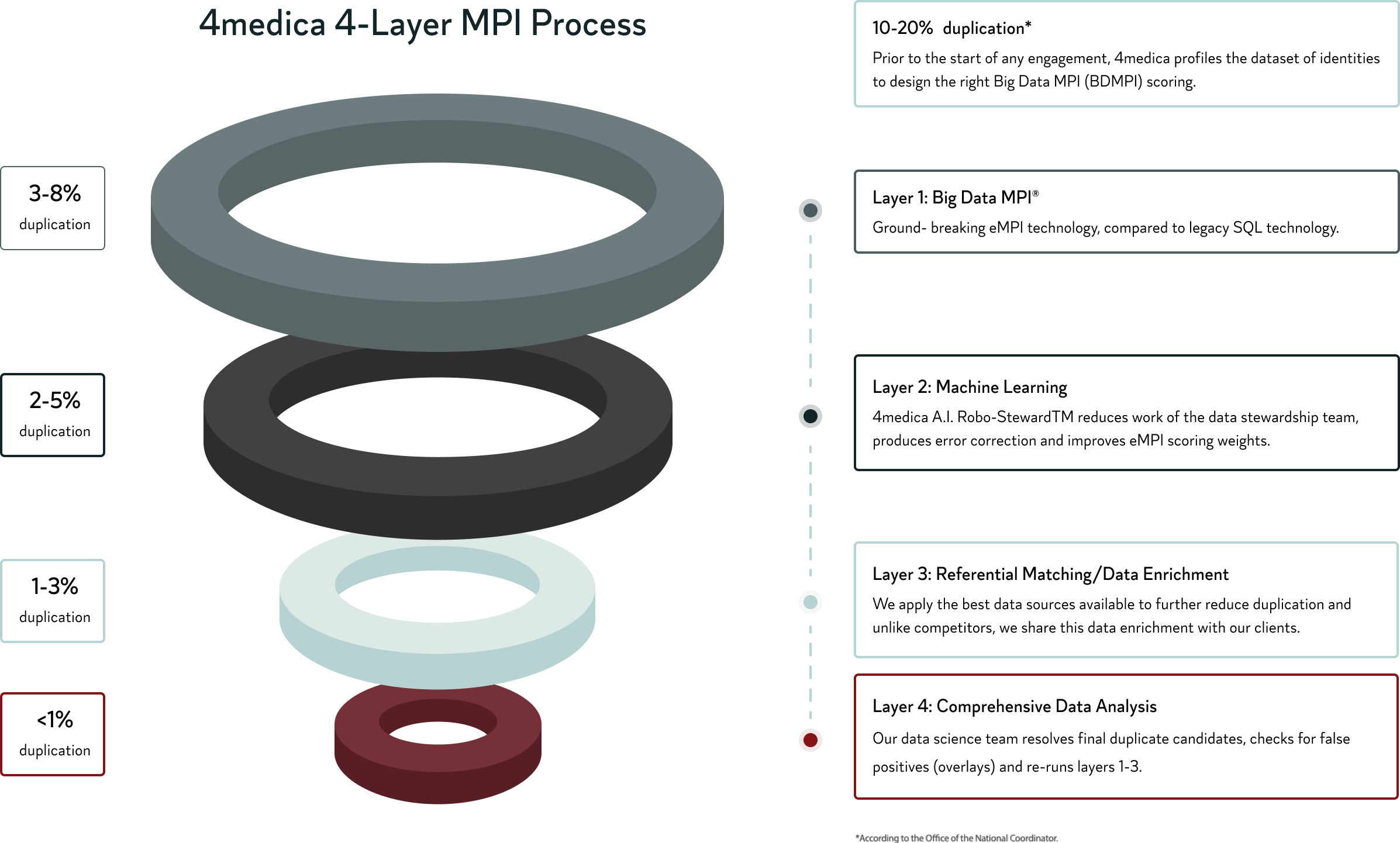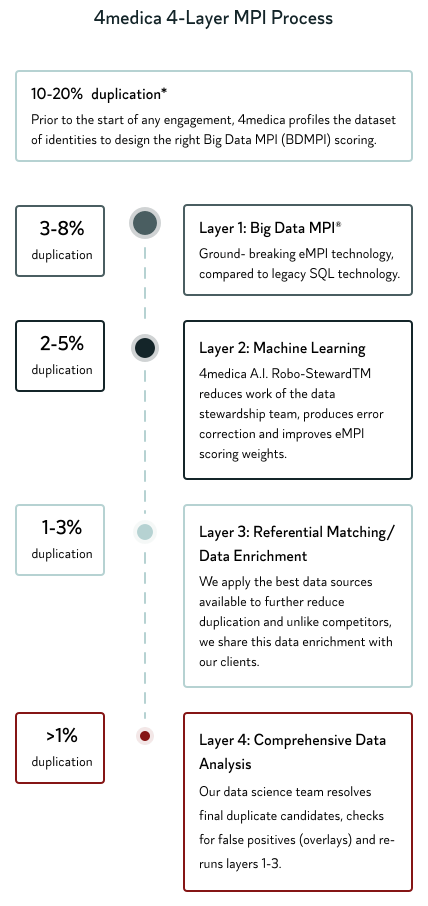Health Plans & ACOs
Poor data feeds poor decision-making


Achieve more meaningful member engagement
4medica helps improve health data quality for interoperability and patient access.
The 4medica Data Quality Platform


Health plan and ACO interoperability and patient access
With Health plans and ACOs, healthcare interoperability is essential because it allows involved providers within the network to access and share important patient information. This information sharing is crucial to ensure that all providers have a complete picture of the patient’s health status and medical history to provide the best care. It allows providers to coordinate care and make informed decisions to improve patient health outcomes.
Patient access is also essential because it enables patients to play an active role in their healthcare. Patients with access to their health information are more likely to understand their health status and make informed decisions about their care.
Patient access final rule
The Patient Access Final Rule is a regulation issued by the Centers for Medicare and Medicaid Services (CMS) in 2020 that requires healthcare providers and health plans to give patients timely and secure access to their health information electronically. This advancement in interoperability and patient access promotes efficient data exchange.
The Patient Access Final Rule is part of the implementation of the 21st Century Cures Act, which aims to accelerate medical innovation and improve healthcare outcomes. This rule requires healthcare providers and health plans to use modern technology standards to share patient health records with patients and other healthcare providers securely and efficiently. 4medica helps ensure your organization is compliant with the patient access rule and ensures high-quality data exchange.
Under the Patient Access Final Rule, healthcare providers and health plans are required to:
- Provide patients with access to their electronic health information (EHI), such as medical records, test results, and clinical notes, within one business day of the information becoming available to the provider.
- Use modern technology standards, such as Fast Healthcare Interoperability Resources (FHIR), to enable patients to access their electronic health records and clinical data through a smartphone application or other third-party app of their choice following Patient Access API standards.
- Ensure that patient health information data sharing is done securely and without unacceptable delay, consistent with the Health Insurance Portability and Accountability Act (HIPAA) and Patient Access API regulations.
The Patient Access Final Rule is intended to empower patients by giving them control over their health information, allowing them to share it with their healthcare providers and manage their care more effectively. By providing patients with access to their health information, the rule also aims to improve care coordination and reduce medical errors.